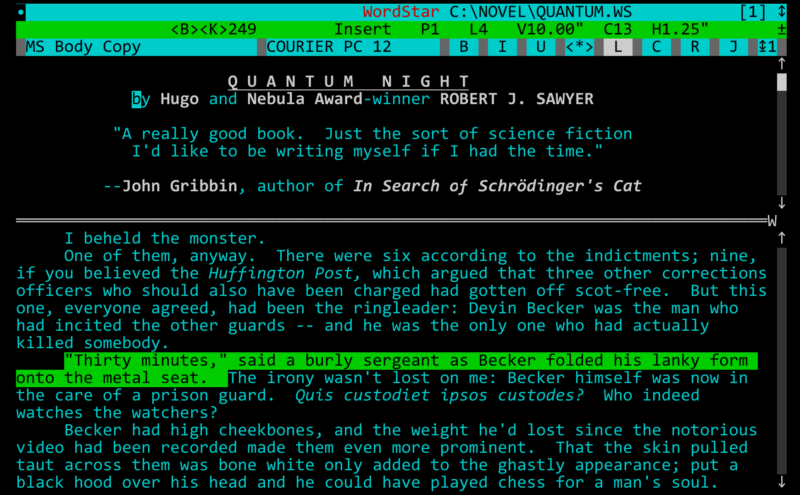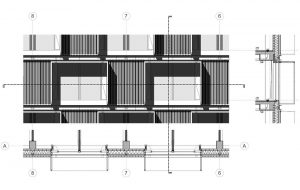Written by: Ar. Ng Chee Wee

Remember how we used to type?
Buzz Word of the day – “New Normal”. Read the newspapers, open a magazine, tune in to YouTube – and you can’t escape a pundit or two talking about how Covid-19 will fundamentally change how we live, work, eat and travel. All this noise inevitably brought me back to the uni days. It was the early 80s, and we were the generation just before the invasion of computers and CAD. Those days laptops were the size of suitcases the price of a small car, and computers were the size of mini-fridges. None of the students I knew own anything close to a digital calculator. My final year thesis was written in longhand and I paid a typist to type it up just in time for submission. Yes – you could absolutely get people to do that in the good old days!
Then came the Mac. It was a very compact computer compared to the regular behemoths of the day – and it was great for typing documents – compared to the monstrosity that was Wordstar! It could even be used to do basic CAD. Countless architectural prophets claimed it was the dawning of the New Age – it was going to change everything – revolutionize how buildings were designed and built. The paper and pencil were going the way of the dinosaurs. But to use the Mac – one had to queue up for hours at the computer lab. Most of us did all our drawings by hand – even up to the final presentation.
Even to this day – I think most of us veterans and at the risk of going the way of the dinosaurs – would smile secretly at the thought that we could design better and faster with pencil and paper – than the whiz kids with the latest laptop and 3D software. No – the pencil and butter paper hasn’t gone away – and the “New Normal” is very much like the “Old Normal”, albeit with better 3D visualizations.
Will Covid completely change the way we are as social animals? It will be extremely sad if we become creatures who are paranoid about close contacts, the company of strangers, hanging out in public places, and the joy of shared experiences – not virtually but together in real spaces. There is a danger that we will all retreat into the nostalgia of a life in country idle – away from the urban chaos and congestion. Such longing for a quieter, less congested and therefore “safer” life runs counter to what we actually need to do to prevent the next even bigger disaster – that of Climate Change.
To avert or at least slow down the coming environmental catastrophe, we need to live closer together – in denser cities, smaller spaces, commute much less, consume less resources, and do much less damage to the environment. There is a danger that due to the experience of this pandemic we and policy makers will veer to the direction of moving life away from the city again, to de-densify our living and working environments – spread the population out to the suburbs – and repeat the environmental disaster of the urban sprawl.
And what about the new enthusiasm for Working From Home. Will this really replace working together in the same physical space? I personally doubt this very much. Communication is not just about speech – much of that happens through body language and subtle signals that virtual meetings just can’t capture. For creative professionals such as architects – nothing can really replace sketching on the same piece of butter paper.
The other unescapable reality is that we are after all social animals. The solitude of working from home – even though we are with family – cannot replace the social connections that we develop in a physical office. The office is not just a place for work – it is part of our social fabric that takes up often more than 50% of our life and losing that would be quite a big blow to our psyche and wellbeing.
Bill Gates recently predicted that one of the things that will change is “we will socialize less at work and more in our community”, because remote working will be normalized and many people will choose to live in places where the cost of living is lower and quality of life is better – as they are no longer tied to a place of work. But I think he speaks from the perspective of a technologist – where technology will solve all our problems and make everything better. He also speaks from the perspective of somebody who does not need to work. I think there is a big difference between those who have social and financial power to choose their work and lifestyle, and those who don’t.
There is no doubt that working from home has its benefits. The saving on commuting time, more time with family, ability to connect with people across distances and boundaries – these are all net positives. So I believe that there is a hybrid future on the horizon – a combination of traditional physical offices and remote working. Perhaps we will divide our time between the office and the home – find a balance that works for each individual and each work environment. Afterall, not every job is the same – so this new freedom and flexibility to work from home and the office may allow us to finally seek some kind of work-life balance that is sorely lacking for many people.
How would this impact the design of future cities? I think we can borrow from the idea of Living-and Aging-In-Place – how about Living-And-Working-In-Place? We should cut the talk and finally try to live closer to the workplace and cut down commuting time. That means multi-functional cities with work and living spaces inter-mingled instead of segregated. Maybe the promise of SOHO, SOVO and SOFO will finally find their rightful place in our future urban fabric. We should also try to design shophouses that people actually want to live in – not the drab and dull concrete boxes that they are now. I look forward to the day when I could just go downstairs or walk a couple of blocks to the office, stop by the corner Earthlings Café for a coffee, go home for lunch before going back for a 2.00p.m. meeting. When will that happen? And will it be affordable?
END






